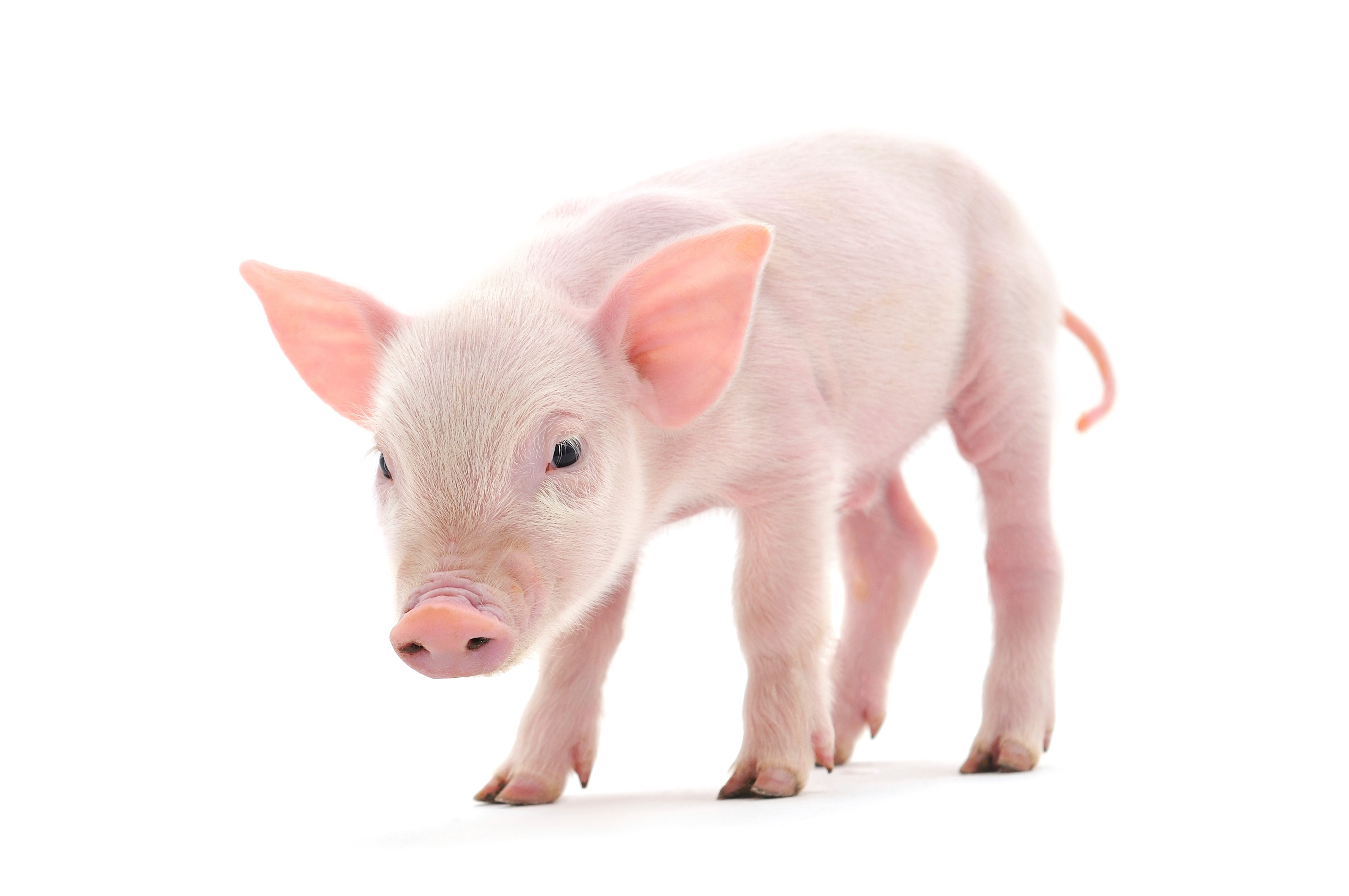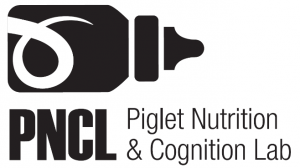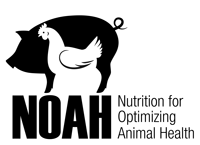Information about the Nutrition, Health, and Neuroscience Laboratory.
 The research in Nutrition, Health, and Neuroscience Laboratory integrates the interdisciplinary fields of neuroscience, immunophysiology, and animal nutrition, including the ability of nutrients to impact metabolic, immunologic, and developmental patterns. We focus on comparative animal nutrition, with an emphasis on biochemical aspects of proteins and amino acids, but also strive to integrate immunological and behavioral outcomes as related to overall animal health. One notable project in our lab is the use of a translational piglet model for studying the impact of nutrient intake and infection during the neonatal period on brain development and cognitive function (i.e., learning and memory). Overall, research projects in this laboratory can be broadly categorized into two areas:
The research in Nutrition, Health, and Neuroscience Laboratory integrates the interdisciplinary fields of neuroscience, immunophysiology, and animal nutrition, including the ability of nutrients to impact metabolic, immunologic, and developmental patterns. We focus on comparative animal nutrition, with an emphasis on biochemical aspects of proteins and amino acids, but also strive to integrate immunological and behavioral outcomes as related to overall animal health. One notable project in our lab is the use of a translational piglet model for studying the impact of nutrient intake and infection during the neonatal period on brain development and cognitive function (i.e., learning and memory). Overall, research projects in this laboratory can be broadly categorized into two areas:
- The practical nutrition issues facing animal agriculture.
- The fundamental nutrition questions studied using translational animal models to improve human/animal health and well-being.
Our Principal Investigator is Ryan N. Dilger.
Check out our website here, and click the tabs below to learn about our two main projects.
Nutrition & Neuroscience: Piglet Nutrition and Cognition Lab
 Piglet Nutrition and Cognition Lab
Piglet Nutrition and Cognition Lab
Created as a high-throughput facility to artificially-rear newborn piglets and conduct behavioral testing, this unique infrastructure is designed to investigate how early-life nutrition influences the growth and development of the brain. With an experienced facility coordinator and capacity to raise 48 newborn piglets simultaneously, PNCL offers collaborative opportunities to use the piglet as a pre-clinical model in biomedical research. A dedicated behavioral suite, separate from the piglet rearing room, permits sensitive testing of eye-blink conditioning and novelty preference paradigms. A custom-designed automated feeding system ensures precise delivery of dietary treatments to individual subjects. A home-cage video provides 24/7 monitoring of piglet behavior, allowing for characterization of sleep and activity patterns. This research area is focused on studying the interaction of early-life nutrition on the development of a stable microbiota, immunity, and gut and brain function.
Don't forget to follow us on Twitter!
Nutrition & Health: Nutrition for Optimizing Animal Health
 Nutrition for Optimizing Animal Health
Nutrition for Optimizing Animal Health
The interaction between nutrition and health is important for both production animal agriculture and human well-being, and there exists a complex interplay between the development of a stable microbiota, intestinal function, and maturation of the immune system in young animals. Moreover, a normal gastrointestinal function is often compromised when an animal experiences immune activation, including decreases in nutrient digestion and absorption. From a nutritional perspective, these circumstances are quite challenging to manage because disease-challenged animals not only consume less feed but also experience metabolic shifts that compromise profitability. Research in this area focuses on how nutritional technologies influence growth, immunity, and gastrointestinal function, as well as how nutritional requirements are changed in livestock species experiencing respiratory and enteric infections.
Be sure to follow us on Twitter!